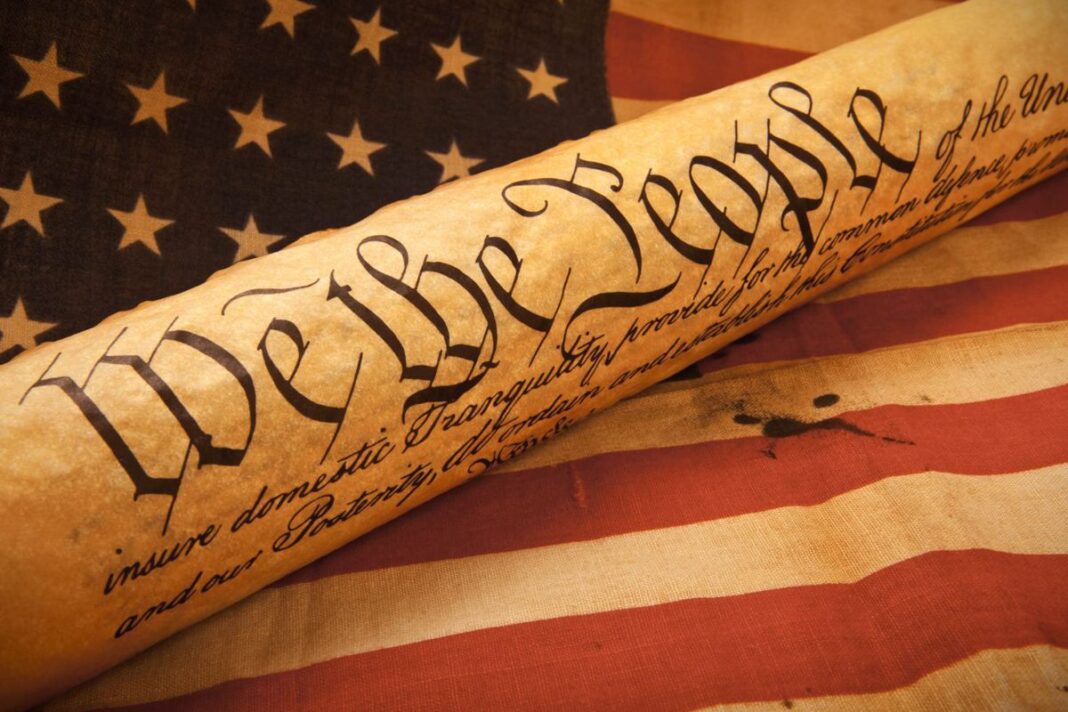When the Preamble to the U.S. Constitution was written in 1788, the honored Framers intended to succinctly state in understandable language for the benefit of all U.S. citizens the basic purposes of the American republic’s highest law. The Supremacy Clause of the U.S. Constitution, Article VI, Clause 2, states unambiguously that the U.S. Constitution is the highest law of the land and takes precedence over any State law. The Framers, in the words of the Preamble, intended to sum-up the enumerated powers of the federal government in fifty-two words specifically stating that ensuring domestic Tranquility, providing for the common Defense, and promoting (not providing) the general welfare, were the essential tasks of the federal government under the dictates of the Constitution in order to ensure the ongoing liberty of the People of the United States of America.
The first element of the purpose of federal government stated in the Preamble was the ensuring of domestic tranquility throughout the States of the republic. Of course, there was no doubt that the Framers extended that enumerated power to ensuring tranquility in the cities and counties of the thirteen original States. Since the District of Columbia was created as the capital of the republic in 1790, the Framers were not referring to a particular federal entity, such as a futuristic District of Columbia, in 1788 when they wrote of ensuring domestic tranquility into the Preamble. They were instead referring to the whole USA, every State.
In 1789, after the ratification of the U.S. Constitution, there were two law means of federal law enforcement immediately created, legislated, and empowered by Congress, the U.S. Marshals and the branches of the U.S. military. The U.S. Marshals were the first federal law enforcement agency created by First Congress. It was George Washington who stated after the creation of the U.S. Marshals Service that, “it is hoped that the Marshals will be the only federal police agency that will be needed by the republic.” The 10th Amendment of the Bill of Rights had reserved to the States the fundamental police power. Yet, from the outset of the republic in 1789, the States were assisted by the federal marshals and the military in maintaining law and order, or domestic tranquility.








